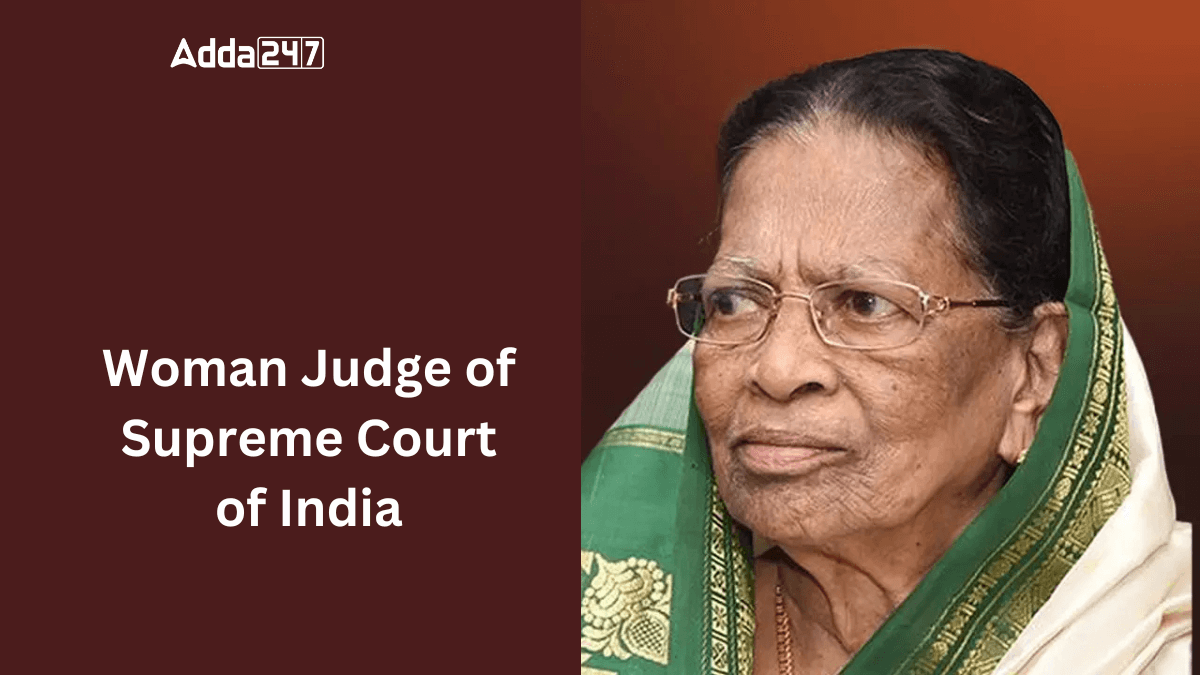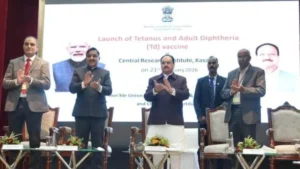The Supreme Court of India is the highest court in the country. It has seen many great judges throughout its history. One of the most important milestones in its history was the appointment of the first woman judge. In this article, we will know more about the first woman judge of Supreme Court of India.
First Woman Judge of Supreme Court
M. Fatima Beevi made history as the first woman judge of Supreme Court of India, marking a significant milestone for women in the Indian judiciary. She also became the first Muslim woman appointed to any of the higher judiciary in the country, inspiring many through her achievements and dedication to justice.
Early Life and Educational Life of Fatima Beevi
Fatima Beevi, born on April 30, 1927 in Pathanamthitta, Kerala, was raised in a society where gender roles were deeply entrenched. She went to school at Catholicate High School and later moved to Trivandrum for more studies. She got a degree in science from University College and then studied law at Government Law College in Trivandrum.
Beginning of Legal Career
Beevi began her legal journey in 1950, enrolling as an advocate after topping the Bar Council exams. She joined Kerala’s lower judiciary as a Munsiff in 1958 and climbed the ranks to become a Subordinate Judge in 1968, Chief Judicial Magistrate in 1972, and District & Sessions Judge in 1974.
In 1980, she was appointed as a Judicial Member of the Income Tax Appellate Tribunal. Three years later, in 1983, she became a High Court Judge in Kerala.
Historic Appointment of M. Fatima Judge
On 6 October, 1989, Justice Fatima Beevi created history by becoming the first lady judge in India’s Supreme Court. This was a huge deal because it showed that women could do any job, even ones that were usually done by men. Her appointed opened the doors for other women who wanted to work in the law field.
Notable Judgements
Fatima Beevi’s legacy also includes her insightful judgements. In cases such as “Scheduled Caste and Weaker Section Welfare Assn. v. State of Karnataka” and “Assam Sillimanite Ltd. v. Union of India”, her thoughtful approach underscored the importance of safeguarding citizen rights and questioning unconstitutional laws.
Beyond the Courts
After retiring from the Supreme Court, Fatima Beevi became a member of the National Human Rights Commission. Fatima Beevi also had a political career. She became the Governor of Tamil Nadu on 25th January 1997. This showed that she was also a great leader who made important decisions for the state. From 1997-2001, she served as the Governor of Tamil Nadu, leaving an indelible mark on governance.
Legacy
Fatima Beevi’s remarkable journey, from a young woman in Kerala to a pioneer in the Indian legal system, continues to inspire generations. Her unwavering commitment to justice, her trailblazing spirit and her advocacy for gender equality have left an indelible mark on India’s legal landscape.



 L&T Vyoma to Study 250 MW Green AI D...
L&T Vyoma to Study 250 MW Green AI D...
 Made in India: Nadda Launches Indigenous...
Made in India: Nadda Launches Indigenous...
 Which Island is known as the Island of P...
Which Island is known as the Island of P...








